On-Demand Outsourcing BPO Services for Healthcare Providers With 24/7 Coverage!
Save up to 70% on staffing costs!
Browse Specialty Staffing Services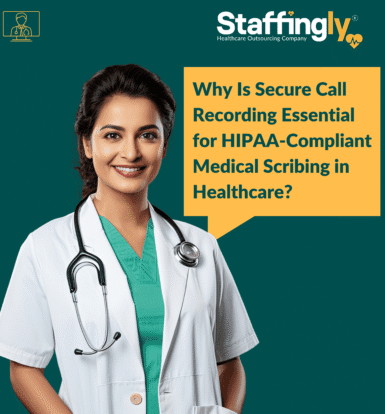
Why Is Secure Call Recording Essential for HIPAA-Compliant Medical Scribing in Healthcare?
In today’s healthcare environment, maintaining clear and accurate communication is crucial. With advancements in medical scribing, more healthcare practices are turning to secure call recording systems to ensure HIPAA compliance while streamlining medical documentation. 💬 “Every conversation in healthcare contains sensitive information. Ensuring that we meet HIPAA standards should never be negotiable.” For clinics and practices that rely on medical scribing, secure call recording is not just an option it’s a necessity. Why Call Recording Is Vital for HIPAA-Compliant Medical
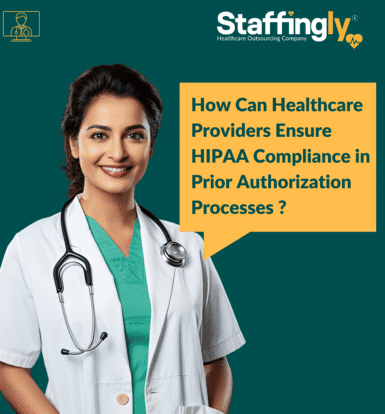
How Can Healthcare Providers Ensure HIPAA Compliance in Prior Authorization Processes ?
At Greenfield Hospital, the day begins as Dr. Smith, a cardiologist, looks over her patient charts for the morning. Among the many tasks she needs to accomplish, one stands out: submitting a prior authorization request for a crucial heart surgery for her patient, Mrs. Allen. This approval process isn’t just about paperwork; it’s about safeguarding Mrs. Allen’s sensitive medical data. As Dr. Smith prepares the necessary documentation, she’s keenly aware that HIPAA compliance is at the heart of everything she
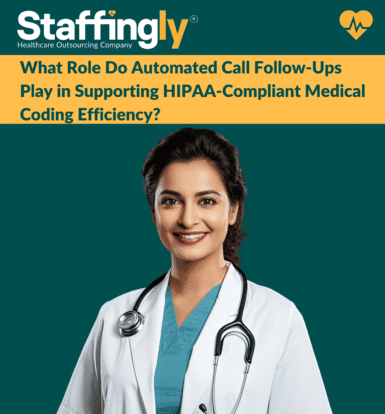
What Role Do Automated Call Follow-Ups Play in Supporting HIPAA-Compliant Medical Coding Efficiency?
Medical coding is the backbone of healthcare revenue. Yet, even the most skilled coders often face delays and denials because of missing documentation, unclear provider notes, or unanswered payer queries. 💬 “Half our denials come from information that could’ve been clarified in a single phone call.” Automated call follow-ups are emerging as a quiet but powerful solution. They don’t just chase loose ends they close gaps, safeguard compliance, and protect revenue before claims ever reach payers. Why Coding Errors Hurt
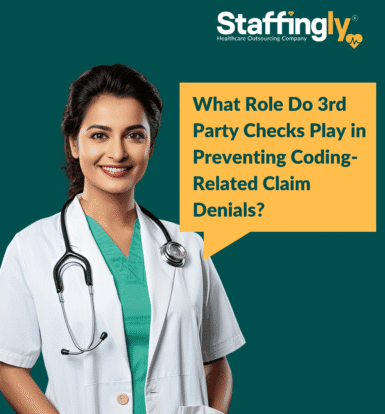
What Role Do 3rd Party Checks Play in Preventing Coding-Related Claim Denials?
In today’s healthcare environment, claim denials remain one of the most frustrating challenges for clinics. While providers focus on care, administrative teams often get caught in a cycle of coding errors, eligibility gaps, and payer rejections. Each denial represents lost time, delayed revenue, and unnecessary stress for both staff and patients. One overlooked solution? Outsourced 3rd party checks. When integrated into the medical coding process, these checks act as a safeguard that keeps claims accurate, compliant, and ready for approval.
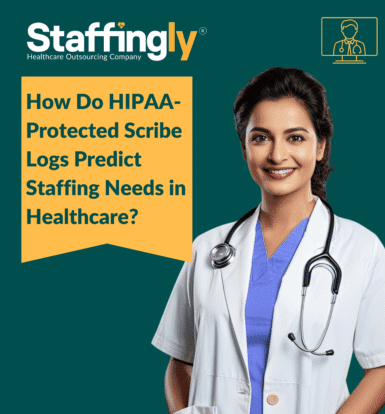
How Do HIPAA-Protected Scribe Logs Predict Staffing Needs in Healthcare?
Every clinic has felt it nurses and providers suddenly overwhelmed, patients waiting longer, documentation falling behind. But when managers look at the schedule, everything seems covered. The missing link? Invisible documentation burdens. 💬 “We didn’t know two providers were spending an extra hour each night finishing charts until denials started piling up.” Traditional staffing models often rely on patient volumes and appointment counts. But the real workload isn’t just how many patients come through the door—it’s how much charting, coding,
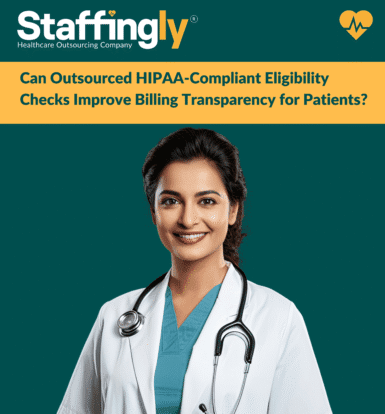
Can Outsourced HIPAA-Compliant Eligibility Checks Improve Billing Transparency for Patients?
If you scroll through Reddit forums on healthcare, one frustration dominates: unexpected medical bills. Patients walk into appointments believing they’re covered, only to be hit weeks later with large balances. 💬 “I asked if it was covered they said yes. Now I owe thousands.” These aren’t just financial shocks they erode trust between patients and providers. Often, the root cause isn’t bad intent, but incomplete or missed eligibility verification. Why Eligibility Matters ? Eligibility verification is the foundation of billing
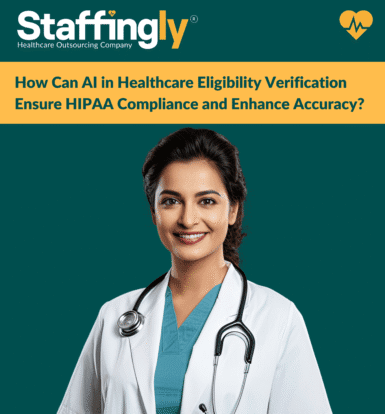
How Can AI in Healthcare Eligibility Verification Ensure HIPAA Compliance and Enhance Accuracy?
In today’s rapidly evolving healthcare landscape, the use of Artificial Intelligence (AI) is increasingly transforming the way insurance eligibility verification is conducted. As healthcare organizations strive to streamline operations and improve accuracy, the integration of AI technologies is seen as a game changer. However, the implementation of AI in eligibility verification also raises important concerns, particularly around compliance with the Health Insurance Portability and Accountability Act (HIPAA) and the accuracy of automated systems. This article explores the intersection of AI

How Can HIPAA-Compliant Eligibility Verification Overcome Challenges Across Healthcare?
Eligibility verification is a critical process in healthcare, ensuring that patients’ insurance details are up to date and that the services they receive are covered by their plans. However, each healthcare specialty faces unique challenges when it comes to eligibility verification. With the use of HIPAA-compliant AI tools, these challenges can be addressed more effectively, improving efficiency, accuracy, and compliance. Eligibility Verification Challenges in Behavioral Health Behavioral health practices face unique challenges when it comes to eligibility verification. These include
 Book a Demo to Build Your Team Today!
Book a Demo to Build Your Team Today!


 Read Case Studies
Read Case Studies 



 Virtual Medical Assistants
Virtual Medical Assistants



